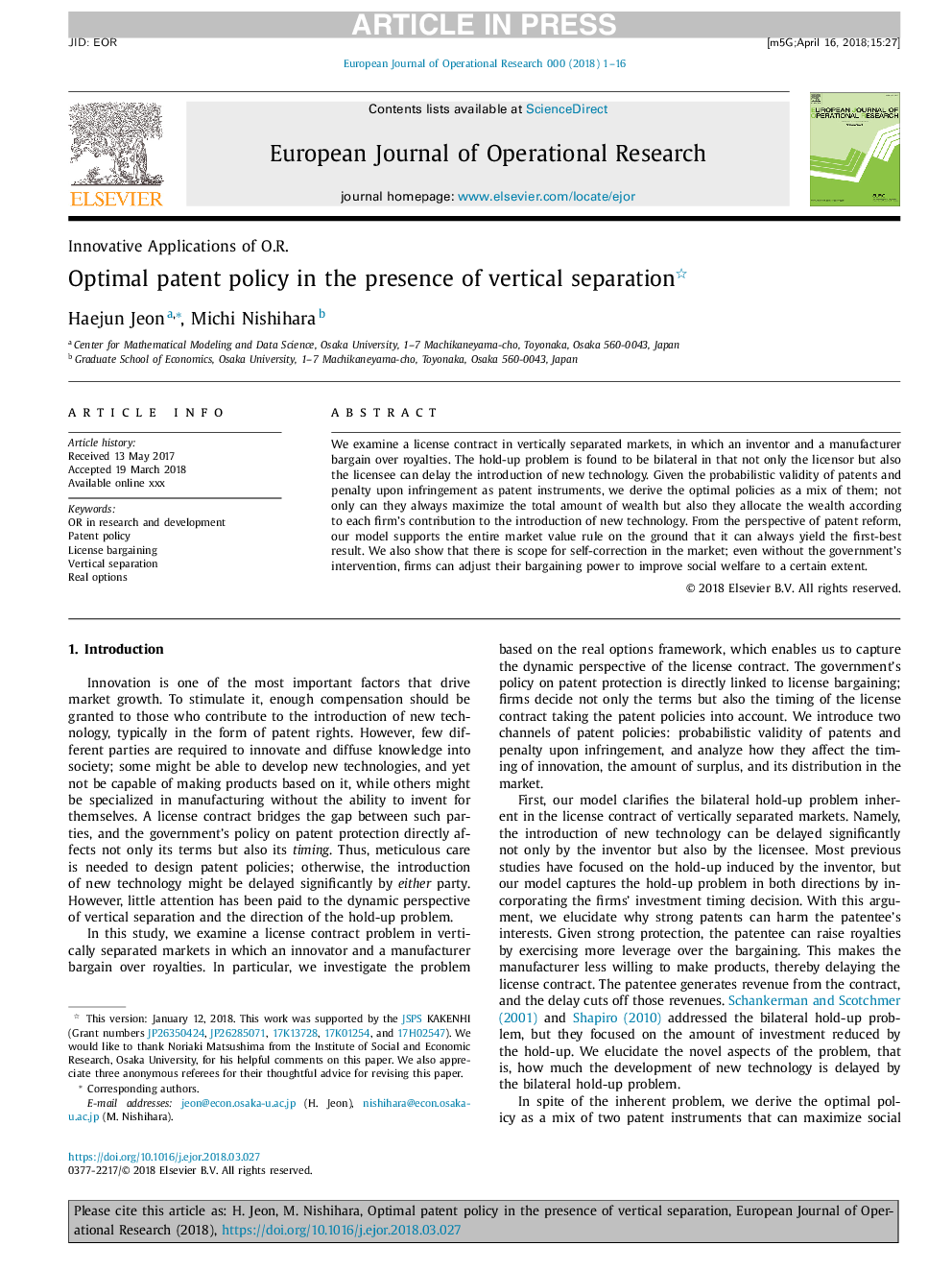| Article ID | Journal | Published Year | Pages | File Type |
|---|---|---|---|---|
| 6894596 | European Journal of Operational Research | 2018 | 16 Pages |
Abstract
We examine a license contract in vertically separated markets, in which an inventor and a manufacturer bargain over royalties. The hold-up problem is found to be bilateral in that not only the licensor but also the licensee can delay the introduction of new technology. Given the probabilistic validity of patents and penalty upon infringement as patent instruments, we derive the optimal policies as a mix of them; not only can they always maximize the total amount of wealth but also they allocate the wealth according to each firm's contribution to the introduction of new technology. From the perspective of patent reform, our model supports the entire market value rule on the ground that it can always yield the first-best result. We also show that there is scope for self-correction in the market; even without the government's intervention, firms can adjust their bargaining power to improve social welfare to a certain extent.
Related Topics
Physical Sciences and Engineering
Computer Science
Computer Science (General)
Authors
Haejun Jeon, Michi Nishihara,
